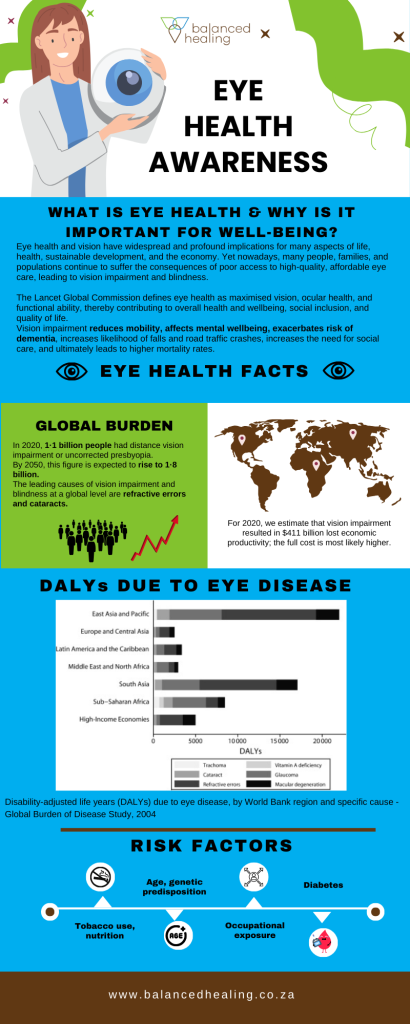For the month of March our body system focus will be around eye health. Our decision was based on the fact that it is also World glaucoma week 10-15 March.
Why Eye Health & what is it's importance?
Eye health and vision have widespread and profound implications for many aspects of life, health, sustainable development, and the economy. Yet nowadays, many people, families, and populations continue to suffer the consequences of poor access to high-quality, affordable eye care, leading to vision impairment and blindness.
The Lancet Global Commission defines eye health as maximised vision, ocular health, and functional ability, thereby contributing to overall health and wellbeing, social inclusion, and quality of life. So why is this important?
Poor eye health and impaired vision have a negative effect on quality of life and restrict equitable access to and achievement in education and the workplace. Vision loss has substantial financial implications for affected individuals, families, and communities. Vision impairment reduces mobility, affects mental wellbeing, exacerbates risk of dementia, increases likelihood of falls and road traffic crashes, increases the need for social care, and ultimately leads to higher mortality rates.
By contrast, vision facilitates many daily life activities, enables better educational outcomes, and increases work productivity, reducing inequality. Eye health can contribute towards poverty reduction, zero hunger, good health and wellbeing, quality education, gender equality, and decent work opportunities.
Vision loss has many causes that require promotional, preventive, treatment, and rehabilitative interventions. Cataract, uncorrected refractive error, glaucoma, age-related macular degeneration, and diabetic retinopathy are responsible for most global vision impairment.
Eye Health Facts

Eye health best foods & other tips


